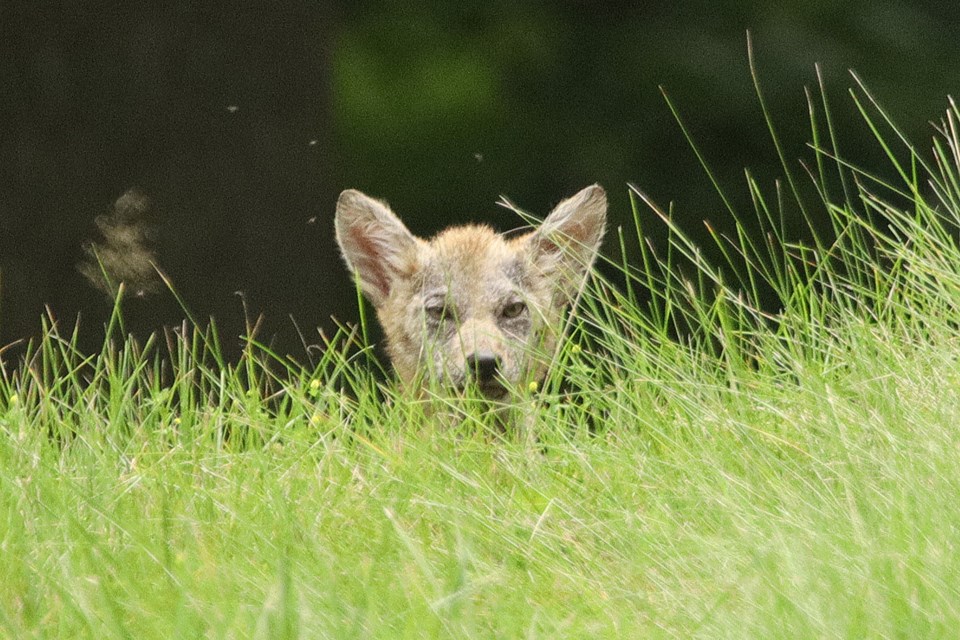Azin Gad is one of many residents in the Old Main Street area who has seen the family of coyotes that has moved into her neighbourhood.
The coyotes that the town has warned about have become territorial and are causing issues, Gad said. With the adult coyotes going after people walking their dogs, Gad said it is hurt the sense of safety, and she wants the town to take more steps to address the situation.
“They’re living in my backyard,” Gad said, adding she expects the municipality “To at least do some stuff for our safety as well. We can’t even go outside to the backyard.
“I’ve heard from so many neighbours if the town doesn’t make any moves, the neighbours are going to make a move,” she added. "That’s going to be ugly.”
Newmarket Animal Services has tried humane hazing to dissuade the coyotes, which include parents and cubs, from interacting with humans since last week. But the town policy is encouraging co-existence with coyotes and discouraging people from approaching or feeding them.
But there are differing opinions about the nuisance the coyotes pose and what should be done.
Resident Roni Suen said the coyotes have been a problem, and he would like to see them relocated.
“It’s been freaking other people’s pets out,” he said. “Kind of unnerving sometimes.”
But area resident David Baker sees things differently. The self-professed wildlife lovers said many in the neighbourhood appreciate having the chance to witness wildlife.
“Most people enjoy the wildlife … We don’t fear them. We enjoy the fact we live so close to nature, and nature’s all around us,” Baker said.
Despite the coyotes living in a residential area, local biologist and wildlife expert Aileen Barclay said there is no reason to fear them. Coyotes will generally keep to themselves, only approaching humans if they are getting fed, which is why it is important not to feed coyotes.
“Wildlife you see around town, they haven’t been displaced so much. It’s more that they’ve adapted to urban and suburban life. You don’t have to feel sorry for them,” Barclay said. “Give them their berth. Don’t scream and run away.”
Relocation is not generally the way to deal with coyotes, she added.
“People will call for removal. It doesn’t work because if you remove them, you can’t relocate them. They will not relocate well. Another coyote will move in because the habitat is there, the food is there."
“There’s nothing that can be done,” she added about the coyotes living in a residential area. “They probably don’t like the situation either. They don’t like to be close to humans.”
The problem is likely to be short-term as the coyotes eventually move on, Barclay added.
But Baker said it could also be a short-term issue due to evidence of mange in the coyotes, which can be a deadline in some circumstances. The disease can cause hair loss and infection among coyotes, and he said his family would like to see a direct intervention on the illness.
“When you look at the cub, it breaks your heart,” Baker said. “It’s just very sad.”
Newmarket's animal servicer supervisor Jacob Brewer said that the adult coyotes are comfortable and confident in the environment, behaviour the town is working to discourage through hazing. He said the town has been doing this daily with success, with the coyotes retreating from officers and heading to the bush.
The town is also interacting with partners like Coyote Watch Canada to decide courses of action, Brewer said. Other actions have included spreading educational information door-to-door in the neighbourhood and signage around where the coyotes are residing.
"Residents are reminded to never feed wildlife or leave food outdoors," Brewer said. "The feeding of wild animals can interfere with natural instincts and behaviours and could encourage unwanted wildlife encounters."
With the attention the coyote family is getting, Barclay said people should steer clear and avoid interacting with the creatures. She added it is important to keep dogs on leashes, six feet or less.
The town's advice is also to stay away from coyotes, and if approached by one, pick up small children or pets, back away calmly, wave your hands and make lots of noise to dissuade the animal.
Area resident Dan Gawlik said outside of some interactions with dog walkers, the coyotes have not bothered anyone.
“They got just as much right to live here as me,” he said.
You can report a coyote interaction to animal services at 905-895-5193.



